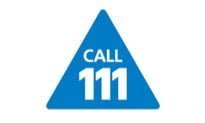‘Most complex’ NHS 111 pilot runs in NW
- 19 January 2012

The country’s largest and most complex NHS 111 pilot has gone partly live, using both Adastra and IntefleCS 111.
The NHS 111 North West pilot went live in Lancashire (excluding West Lancashire) in November and is due to go live in Cumbria in late February. There have been more than 25,000 calls answered as part of the pilot so far.
NHS 111 is a free telephone service offering help and advice for people with an urgent health issue that is not an emergency. Patients are assessed and steered towards the most appropriate care options.
As well as being the largest – when completely rolled out it will cover a population of 1.8m people – the North West pilot is also the first to involve a consortium of providers.
NHS Direct is working with out-of-hours service Fylde Coast Medical Services and the North West Ambulance Service NHS Trust on the pilot, and all three will play an equal part in delivering it.
All three are using NHS Pathways as the clinical assessment tool, but NHS Direct is using Clinical Solutions’ IntefleCS 111 as its management system while the out-of-hours provider and ambulance service are using Advanced Health and Care’s Adastra.
Fylde Coast Medical Services and NHS Direct provide the call handling in the areas that they covered before NHS 111 was introduced, and all new activity will be shared between the three organisations. The ambulance service will start taking calls from February 2012.
The telephone system is designed so that if there is additional demand on one provider, patients queuing for longer than 40 seconds are redirected to another provider to answer.
NHS Direct nurses provide clinical support to call handlers via IntefleCS 111. Calls are transferred to a nurse with the patient still on the line and their data sent across electronically, allowing the nurse to view the initial assessment so patients do not have to repeat information.
The pilot is the first to include the NHS Repeat Caller service where the operator is notified as to whether the patient has recently had any urgent care encounters across England.
IntefleCS111 and Adastra will also be linked into the North West Ambulance Service’s 999 call management system allowing 111 call handlers to automatically dispatch ambulances.
Clinical Solutions chief executive Xavier Flinois said the pilot: “Shows what the Department of Health is trying to achieve with 111, which is a highly interoperable environment where multiple service providers and systems can share the information about the patient and information is not lost in the process."
“The patients are moved around, but in just one encounter,” he said. “Regardless of the system the service provider is using, the patient experience is the same.”
Jim Chase, managing director of Advanced Health and Care, said the level of collaboration in the North West pilot was “unique” and “bold."
The service is working on a new functionality to allow call handlers to directly book appointments with out-of-hours providers which Chase said would be a “powerful development."
NHS 111 is due to be rolled out nationally by April 2013. Chase said there were going to be different delivery models develop in different areas.
“This gives heart to those who believe that the future is in terms of collaboration with various providers and IT systems,” he said.




